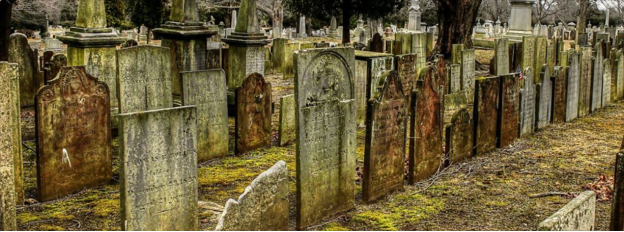Summary
The uncertainty of the future and the certainty of death can cause fear and distress for many. We see this right now with the fear of COVID-19, creating anxiety and hysteria in the media which infects us all. Nobody wants to die, certainly not soon, and if we have to die (which we do) we would like to know when so we can settle affairs.
The approach of death and the brevity of human life is a subject of Psalm 39. King David, perhaps approaching older age, reflects on how short life is. Acknowledging his silent suffering, David speaks out in prayer, asking God to make him aware of his life’s brevity, and appealing for deliverance from his sins and suffering.
Our passage explained
v1-3
Psalm 39 begins in verses one to three with a description of silent suffering. David had wanted to speak, but because “the wicked are in my presence” he does not speak to avoid sinful speech, even to the point of (metaphorically) muzzling himself (v.1).
Despite his active silence, his feelings do not go away. He keeps silent “to no avail” and his distress (literally: pain) grows worse (v.2). Instead, feelings of anger grew as his heart burned inside him, overwhelming his control of his tongue (v.3). Finally, he had to speak.
v4-8
David’s speech does not condemn the wicked or blame God, but instead asks God for an awareness of life’s brevity. He asks God to “make me know my end and what is the measure of my days, let me know how fleeting I am!” (v.4). David wants to understand how short his life is, and how frail.
Compared to God, David proclaims our lives are insignificant; “a few handbreadths … as nothing before you” and all of us are like a breath that floats away in the breeze (v.5, cf. Ecclesiastes 1:1-11). Our lives are short and pass like a shadow from a person walking by. we suffer all sorts of turmoil in our brief lives collecting wealth which others will enjoy, whether our children or others (v.6, cf. Eccl. 5:8-20). These statements have a sorrowful sense.
In the midst of his suffering, and the brevity of human life, David appeals to God for deliverance. The only hope for the psalmist is in God (v.7). He asks God to deliver him from “all my transgressions” (v.8), which includes his sinful thoughts and ideas expressed earlier. It may also include his over-thinking on the shortness of life, for which he has already asked God for a proper perspective (vv.4-6). Even a fool can see he is too caught up in these things, and scorn him for it (v.8).
v9-13
David recognises that his suffering is ultimately from God, and so is silent (v.9). He recognises God’s sovereignty and rule over all things, including the number of days we are given. Where before (v.2) he forced himself to keep quiet, here (v.9) he accepts and is content to stay silent.
He then asks God to remove his discipline, which he describes as a “stroke” delivered from God’s hand (v.10). The suffering he feels is discipline from God as a rebuke for sin. Whether it is comfort or wealth, God’s discipline eats it away like a moth eats clothes, so there is no point in getting in turmoil over it (v.11).
David’s prayer for deliverance ends with two requests. He asks that God hear his prayer and listen, because he walks with God as his ancestors (like Abraham) did, on a pilgrimage to the celestial city (v.12). He then asks God to “look away” (with his judgemental face) so his knowledge of the joy of God’s love returns before his days on Earth end (v.13).
Our passage applied
This psalm covers themes which we see in Job and Ecclesiastes; the shortness of human life and understanding suffering of the righteous. Instead of raging in anger (spoken or not) at the supposed injustice, this psalm encourages us to recognise God’s hand over all events, and find silent contentedness in God’s rule.
Finding contentedness in God and his rule over all things allows us to live rightly. It can help us see the turmoils of life from a different perspective, as the discipline of a loving father as a rebuke for sin, and brief at that as we are not long for this Earth. Viewed from eternity, our turmoils and sufferings are just a moment.
Since our lives are in God’s hands and are his to number, the troubles which come are just part of our pilgrimage to the New Heaven and Earth.
We could get worked up about wealth (or COVID-19), but in God’s eyes they are just brief breaths that pass away, nothing that lasts. There is no value in getting worked up over them, as either they do not last or we do not last long enough to enjoy them.
In Christ we experience the love of God, so the sufferings of this brief moment are nothing compared to the riches of eternity with God.
Resources
Questions? Please contact us. Inspired? Come and worship with us on Sundays.


